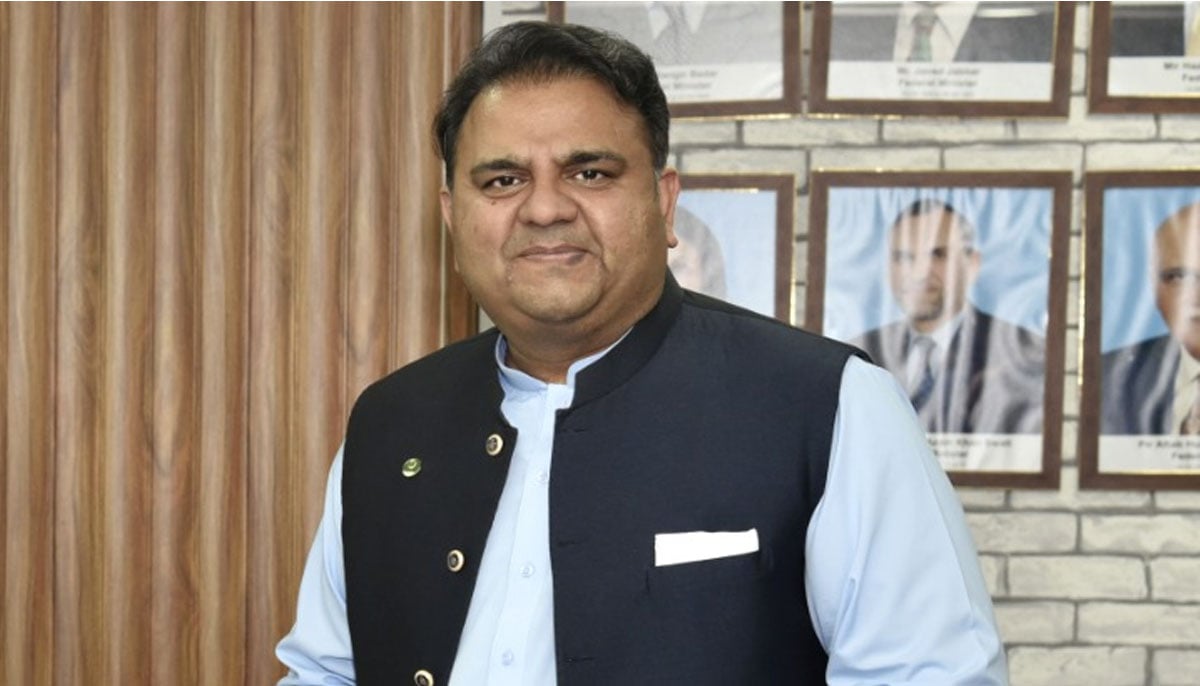Halal food industry to be promoted: Fawad Ch
ISLAMABAD: Federal Minister for Science and Technology Chaudhry Fawad Hussain said that the Halal food industry would be promoted with help of technology, as Halal Food Authority would be established.
He said that without digital technology, no country could make progress. In a bid to come up with nontraditional methods, he said that the government granted permission for growing of cannabis in order to promote non-traditional crops.
He said that the Halal food products possessed potential of Rs1 trillion and Saudi Arabia and Malaysia are getting benefits from it. There is huge potential for Pakistan, he added. “Now the time has come to utilise digitalisation and biotechnology,” Ch Fawad Hussain said while addressing a seminar on Halal Food organised here at FPCCI on Wednesday.
The minister said that the provinces did not inform about their plans with regard to Halal food in the aftermath of 18th Amendment. He said that the government would incentivise those who wanted to invest in this sector.
In order to promote livestock, he said that farms would be promoted and emphasised upon provincial governments and their livestock departments to contribute towards promoting and strengthening of this sector.
The minister said that there would be major changes and transformations expected to happen over next seven years as the public transport would be shifted on electrical vehicles. The minister said that Pakistan could not make progress through selling of low value products such as potato and pea.
Pakistan National Accreditation Council, Ministry of Science and Technology conducted Awareness Seminar on Halal Accreditation in collaboration with Federation of Pakistan Chamber of Commerce to promote and highlight the role of PNAC, need, importance and benefits of Halal Accreditation.
The theme of the seminar was Halal Accreditation; A Gateway to International Trade. Chief guest Chaudhry Fawad Hussain, Ms Ismat Gul Khattak, Director General Pakistan National Accreditation Council (PNAC), and Akhtar Bughio, Director General Pakistan Halal Authority (PHA), President FPPCI Mian Anjum Nisar delivered speeches during the inaugural session.
Abdus Sami, Deputy Director Halal Accreditation said that food is the global fundamental requirement for sustaining the overall good health and well-being of the consumers. There are hundreds of foodborne diseases due to which around 600 million consumers become sick and over 420,000 die prematurely per annum.
Accreditation, a tool, referred to as an important component of the quality infrastructure, which provides assurance to food consumers or users that food safety is dependent on the credible and traceable services of Conformity Assessment Bodies (CABs) such as, FSMS, GAP, organic certification etc., and Halal Accreditation.
Halal food now is not limited to only Muslims but non-Muslims are also considering it due to its value-added features and safe food. The Halal Accreditation is based on applicable standard, PS:4992 & OIC/SMIIC guidelines.
Pakistan National Accreditation Council (PNAC) is the sole accreditation body and pioneer in the world for Halal Accreditation. Pakistan is the founder member of International Halal Accreditation Forum (IHAF) and an active member of The Standards and Metrology Institute for the Islamic Countries (SMIIC).
The importance of Halal Accreditation is not only for improving food safety, it also has the provision to assures the food safety for consumers it will also give assurance of safety, quality, competence for all stakeholders such as for regulators it facilitates in maintaining food safety, security, health, environment to reduce regulations, for Halal Certification Bodies it provides essential supports to maintain the competence of HCB on national and international halal standards. Similarly, for other stakeholders Halal Accreditation also builds confidence in products or services certified by an accredited Halal Certification Bodies among processors, manufacturers, traders, importers, exporters and consumers.
-
 Is Elon Musk Set To Become First Trillionaire In 2026? Market Odds Explained
Is Elon Musk Set To Become First Trillionaire In 2026? Market Odds Explained -
 Prince Harry’s Protective Stance On Meghan Markle Sparked Rift With William, Charles
Prince Harry’s Protective Stance On Meghan Markle Sparked Rift With William, Charles -
 How BTS Push Through Performances As They Gear For 2026 Comeback
How BTS Push Through Performances As They Gear For 2026 Comeback -
 AI Copyright Battle: ByteDance To Curb Seedance 2.0 Amid Disney Lawsuit Warning
AI Copyright Battle: ByteDance To Curb Seedance 2.0 Amid Disney Lawsuit Warning -
 Savannah Guthrie In Tears As She Makes Desperate Plea To Mom's Kidnappers
Savannah Guthrie In Tears As She Makes Desperate Plea To Mom's Kidnappers -
 Canada’s Defence Industrial Strategy Targets 125,000 Jobs And Export Growth
Canada’s Defence Industrial Strategy Targets 125,000 Jobs And Export Growth -
 Tre Johnson, Former NFL Guard And Teacher, Passes Away At 54
Tre Johnson, Former NFL Guard And Teacher, Passes Away At 54 -
 Jerome Tang Calls Out Team After Embarrassing Home Defeat
Jerome Tang Calls Out Team After Embarrassing Home Defeat -
 Cynthia Erivo Addresses Bizarre Rumour About Her Relationship With Ariana Grande
Cynthia Erivo Addresses Bizarre Rumour About Her Relationship With Ariana Grande -
 Prince Harry, Meghan Markle Spotted Cosying Up At NBA All-Star Game
Prince Harry, Meghan Markle Spotted Cosying Up At NBA All-Star Game -
 Lady Gaga Explains How Fibromyalgia Lets Her 'connect With People Who Have It'
Lady Gaga Explains How Fibromyalgia Lets Her 'connect With People Who Have It' -
 Metro Detroit Weather Forecast: Is The Polar Vortex Coming Back?
Metro Detroit Weather Forecast: Is The Polar Vortex Coming Back? -
 Daniel Radcliffe Reveals Surprising Way Fatherhood Changed Him
Daniel Radcliffe Reveals Surprising Way Fatherhood Changed Him -
 ‘Disgraced’ Andrew At Risk Of Breaking Point As Epstein Scandal Continues
‘Disgraced’ Andrew At Risk Of Breaking Point As Epstein Scandal Continues -
 Alan Cumming Shares Plans With 2026 Bafta Film Awards
Alan Cumming Shares Plans With 2026 Bafta Film Awards -
 OpenClaw Founder Peter Steinberger Hired By OpenAI As AI Agent Race Heats Up
OpenClaw Founder Peter Steinberger Hired By OpenAI As AI Agent Race Heats Up




